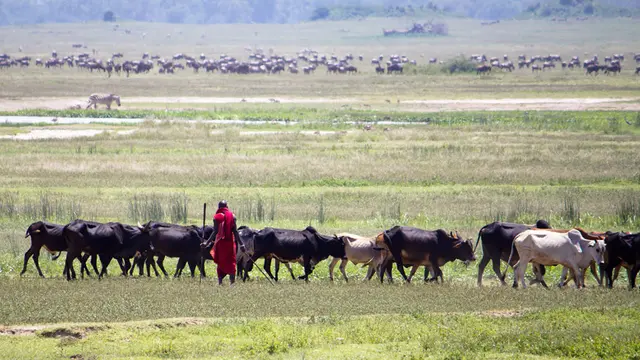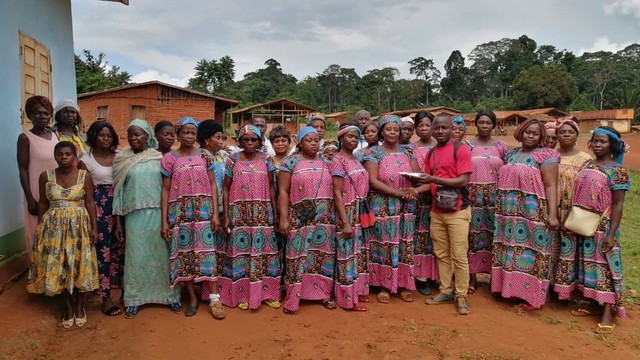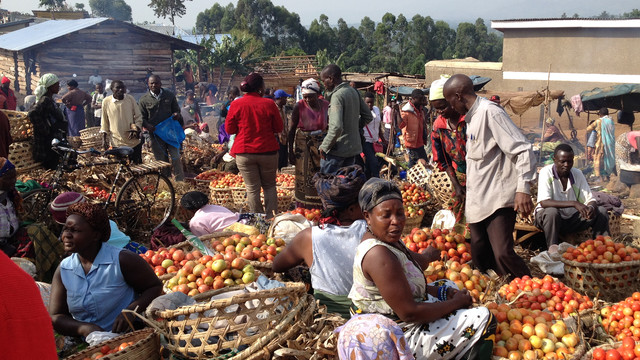Shaping adaptation: here’s how the CBA conferences are making an impact
CBA conferences have created a space for practitioners to share knowledge and perspectives for more than 18 years. Now, a recent evaluation is showing how their approach is having an impact on the adaptation landscape.


Farmers in Chiang Rai, Thailand (Photo: Guillermo Fdez, via Flickr, CC BY-NC-ND 2.0)
The 17th Community-Based Adaptation Conference (CBA17) takes place from 22 to 25 May. CBA is the practitioner-focused adaptation conference, where those on the frontline of locally-led climate action share skills, knowledge and their perspectives on how the adaptation landscape needs to change.
I have been participating in CBA conferences since around 2009, and since 2018, I’ve been a proud funder and member of CBA’s steering committee. In that time, I’ve seen CBA grow and change. Last year, to help us assess CBA’s progress, we asked the independent evaluator Ajabu Advisors to conduct a review, and in this blog, I’ll share what they found.
A new direction
CBA has always evolved in response to new global events and participants' feedback. In 2017, we set bold new objectives for what we wanted to achieve. This is what we wanted to see:
- Decision-makers taking the priorities and knowledge of climate-vulnerable and marginalised people seriously, incorporating them into policies and programmes
- Local organisations have stronger skills and confidence to lead adaptation advocacy and delivery in their own contexts, and
- CBA practitioners becoming allies in delivering locally led adaptation (LLA) that meets the needs of their communities.
To create a conference where this could happen, we moved away from traditional panels and presentations and towards workshop-style participatory discussions that foster dialogues exploring practical local climate solutions.
Reviewing our progress
Five years later, we asked Ajabu Advisors to assess our progress. They spoke with participants from governments and community-based organisations and reviewed feedback surveys to get a sense of how participants have related to the conference over time.
Their findings are overwhelmingly positive, indicating that CBA shapes international processes, creates practical tools for local action, and bridges local communities to the rest of the world. They also indicated a few places where we can improve.
Shaping international processes
Ajabu Advisors found that CBA has contributed to shaping key international processes. For example, the principles for locally led adaptation promote an approach to adaptation that puts communities in greater control of adaptation decision-making.
The conference created a space where members of the Global Commission on Adaptation, which supported the development of the principles, could learn directly from practitioners and take that knowledge into high-level spaces. More than 100 international funders, governments and development actors now endorse the principles, joining CBA as part of a learning process to explore what is working in delivering LLA and examining where challenges remain.
CBA was also part of the development of the Least Developed Countries (LDCs) Initiative for Effective Adaptation Resilience (LIFE-AR). This is an LDC-led initiative to put countries on a pathway to climate-resilient societies by 2030. CBA was a meeting point for donors and participating frontrunner countries, holding dialogues that enabled participants to reflect on how LIFE-AR should operate and what it should try to achieve. Three of the six frontrunner countries hosted CBAs in 2011, 2012 and 2013.
Practical tools for local action
The review also found that CBA has influenced numerous local organisations to incorporate climate change into their plans and strategies and to introduce new ways of working with communities.
CBA ‘skill share’ sessions enable participants to focus on the practicalities of doing LLA – introducing new tools, including, for example, a guideline for exploring the gender transformative resilience priorities of men and women, or an introduction to climate science. The CBA ‘marketplace’, where attendees ‘sell’ their projects to other attendees, helps participants promote their work and meet others interested in their approach.
A bridge from communities to the world
Finally, respondents reported that after participating in CBA sessions, they have more confidence to represent LLA in international spaces. Indeed, the evaluators described CBA as a “bridge from communities to the world”.
This is likely for two reasons. First, CBA creates a space where all participants feel comfortable sharing their lived experience and technical knowledge – not just those with long experience of conference attendance or positions at international think tanks and NGOs. This reduces the power imbalance between adaptation practitioners and the donors and researchers who aim to support their work.
Second, global organisations come to CBA to understand practitioner perspectives, and messages emerging from the discussion at CBA are shared with partners and allies that have influential roles within the UN climate process or other events – including the UK’s Foreign, Commonwealth & Development Office, the COP Resilience Hub and the Gobeshona conference, to name just a few.
Issues we need to address
But the report also reflected where the CBA conferences could continue to improve. We could do more to make the conference as accessible and as inclusive as possible.
Our digital conferences – developed in response to the pandemic – enabled many to participate. But online events risk deepening the digital divide: smaller organisations with unreliable or expensive internet connections struggle to participate fully in long online sessions. Networking and creating genuine connections also become more difficult using digital platforms.
Language is also an issue: CBA remains a predominantly English-speaking event, making it challenging for our colleagues in regions like West Africa or South America to participate.
To address these accessibility challenges, we need to invest in creating different types of events that participants can join depending on their needs. That means establishing smaller regional conferences where participants can hold discussions in languages such as French or Swahili, and digital events throughout the year that facilitate networking and knowledge sharing.
We also want to ensure we can enable as many community-based practitioners as possible to shape the conversation about adaptation by expanding sponsorship of CBA attendees. But to do that, we’ll need more funders who can help us to invest in creating these opportunities.
Support us to shape adaptation at a critical moment
This year we’ll be breaking new ground by devoting several sessions to a new theme, ‘decolonising climate action’. The sessions in this theme will allow practitioners to explore and articulate the ways in which colonialism, racism and other injustices are maintained through the climate action – and inaction – of former colonial countries. Other themes will bring forward practitioner insights on climate finance, nature-based solutions and youth-led action on LLA.
If you are in an organisation that can strengthen CBA’s ability to bridge local climate expertise with national and global agendas, we’re calling on you! By sponsoring participants from community-based and local organisations to attend, you can help ensure that local perspectives and lived experience inform adaptation practice, and that people on the frontline of the climate crisis can raise their voices in an impactful space for global discourse.
- Read the full CBA evaluation report and then get in touch (cbaconference@iied.org) with us to talk about partnerships and making the most out of CBA



